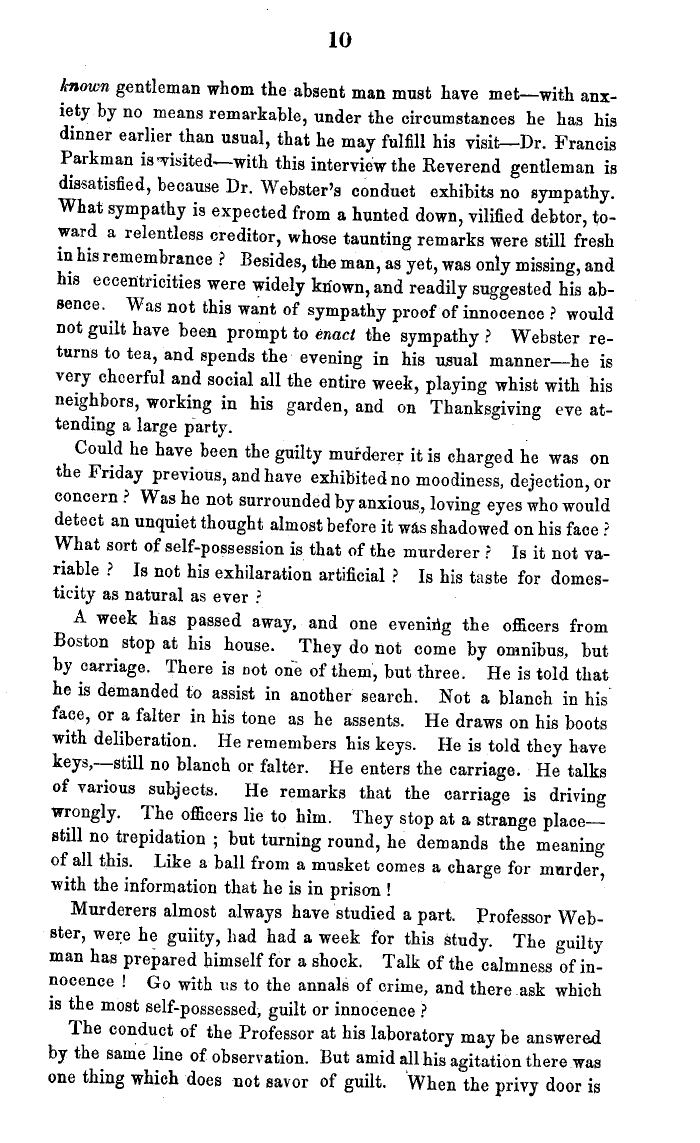|
10
known gentleman whom the absent man must have met-with anx-
iety by no means remarkable, under the circumstances he has his
dinner earlier than usual, that he may fulfill his visit-Dr. Francis
Parkman is-visited-with this interview the Reverend gentleman is
dissatisfied, because Dr. Webster's conduct exhibits no sympathy.
What sympathy is expected from a hunted down, vilified debtor, to-
ward a relentless creditor, whose taunting remarks were still fresh
in his remembrance ? Besides, the man, as yet, was only missing, and
his eccentricities were widely known, and readily suggested his ab-
sence. Was not this want of sympathy proof of innocence ? would
not guilt have been prompt to enact the sympathy ? Webster re-
turns to tea, and spends the evening in his usual manner-he is
very cheerful and social all the entire week, playing whist with his
neighbors, working in his garden, and on Thanksgiving eve at-
tending a large party.
Could he have been the guilty muiderer it is charged he was on
the Friday previous, and have exhibited no moodiness, dejection, or
concern ? Was he not surrounded by anxious,, loving eyes who would
detect an unquiet thought almost before it was shadowed on his face
What sort of self-possession is that of the murderer ? Is it not va-
riable ? Is not his exhilaration artificial ? Is his taste for domes-
ticity as natural as ever ?
week has passed away, and one evenbig the officers from
Boston stop at his house. They do not come by omnibus, but.
by carriage. There is not one of them, but three. He is told that
he is demanded to assist in another search. Not a blanch in his
face, or a falter in his tone as he assents. He draws on his boots
with deliberation. He remembers his keys. He is told they have
keys,-still no blanch or falter. He enters the carriage. He talks
of various subjects. He remarks that the carriage is driving
wrongly. The officers lie to him. They stop at a strange place-
still no trepidation ; but turning round, he demands the meaning
of all this. Like a ball from a musket comes a charge for murder,
with the information that he is in prison !
Murderers almost always have studied a part. Professor Web-
ster, were be guiity, had had a week for this study. The guilty
man has prepared himself for a shock. Talk of the calmness of in-
nocence ! Go with us to the annals of crime, and there ask which
is the most self-possessed; guilt or innocence ?
The conduct of the Professor at his laboratory may be answered
by the same line of observation. But amid all his agitation there was
one thing which does not savor of guilt. When the privy door is
|

